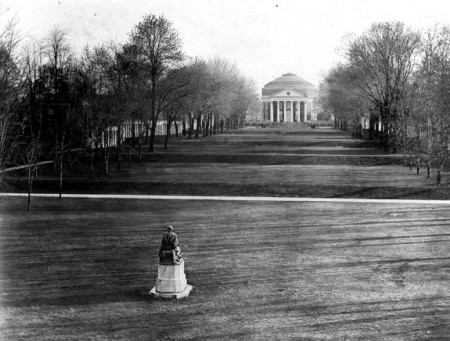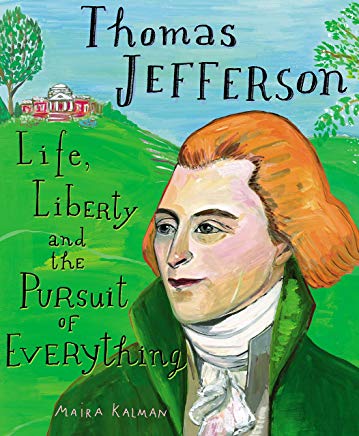The Blog
Blog Entry
Screws and Shoes and Bees and Cheese

Yesterday, May 1st, was the traditional deadline for committing to colleges with a deposit – in case you are planning ahead. And in case you forgot, or found yourself trapped at the bottom of a mine for two days, well, I guess you can probably start all over again next year.
We’re good in my house for a while. Looking back on things here, I see I once blubbered upon the occasion of my firstborn son’s graduation from middle school. This came during what was nominally an appraisal of Trashy Town, so I will try to learn some lessons from perspective, and in five or six years when I am signing away my second born’s education to strangers in Maryland, Maine or Massachusetts, we shall hope I do not consider these reflections unkindly.
What a long, strange trip it has been. I’ve toured college sports arenas that seated thirty thousand thundering fans, and English classes conducted in a barn. I’ve seen crescent-shaped science facilities, bears with fountains spraying out of them, kissing benches, tires swinging from tall oaks. Lazy rivers, staring observatories, and a performance space that looked like it was melting in the sun. Still, I wish I could have enjoyed it all a little more – at least before we were finally guaranteed against becoming somebody else’s cautionary tale. The clever stories I might have collected, the smiling photos, the far-flung friends, if I weren’t forever petrified at the possibility that my son was aspiring too high, or too low, or just right, and would end up living in a bus station regardless. Why, it was only a week ago at a tour of a college to which he had already been accepted, for goodness sakes, that I finally thought to ask, “Wait. So how many a cappella groups do you have?”
Thought it, didn’t ask. So you know: a cappella is one of the attractions that college admissions people never fail to bring up. Also, hilariously, Quidditch. Also, less hilariously, Study Abroad: to rainforests and archipelagoes and castles in Herzegovina. It’s not free. It’s not even thirty thousand dollars from being free. Dear parents of toddlers searching for a critical analysis of Trashy Town: in fifteen or seventeen years, please be alert to the whopping red herring that is Study Abroad.
And you should know that every university, no matter how modest, has something called a “Black Box” which they are apparently desperate to show you. Good thing I toured, or who knows what I would have been picturing.
Small school, great school, state school, not-in-a-million-years school, the kids who directed these tours were universally dynamos, so many clubs and teams and groups and departments and leadership councils they belonged to that my son and I took turns being both a little thrilled and a little depressed.
Worthy role models, you would think, though with as much ground as we should need to make up, these are sometimes also the sorts of people who make it hard to dip a toe out of bed in the morning. Which brings me to Thomas Jefferson, writer, philosopher, violinist (three hours of practice every day), President, botanist, architect, cartographer and collector of mastodon bones and scary tribal shields, who not insignificantly slept partly sitting up so he should be ready to bound from his sheets at first dawn, to the left or to the right, depending on whether it was the outdoors that demanded his attention, or his studies.
He grew peas – Arkansas, Black-eyed, Everlasting Hotspurs, and Prussian Blues, among others. Designed an estate with 76 windows. Had freckles (maybe twenty). All this according to the canny documentarian Maira Kalman, who also happens to be a pretty fair children’s author for my money. Her Thomas Jefferson: Life, Liberty and the Pursuit of Everything arrived in the middle of February, then more-or-less vanished before the first shoots of spring, a pity I would attribute to the usual marketing myopia. “But who is this book for?” was probably the subject of interminable conferencing, though as always I would argue about an industry that seems permanently stuck on deathwatch, the better question to ask remains who is this not for exactly?
Kalman’s curiosity is contagious, for starters. (Who wouldn’t want to have her along to ask about a cappella groups?) I’ve passed some time inside Jefferson biographies before, and even chased my own tail around Charlottesville for a couple of years, yet nothing in that proximity to the Monumental Man with Monumental Flaws (as Kalman puts it) has ever left me wanting to know a little bit more. Shorthand history? Sure. Though for the vast majority of us, I am confident, shorthand is better than empty hands. Jefferson scholars, you’re excused.
“He loved books,” begins Kalman, apparently touring Monticello with her omnivorous brushes and capitalizing compulsions. “He read about Shrews and Screws and Shoes and Bees and Cheese and how to say Please in French, Spanish, Latin, Greek, Italian, German and English of course. (He was quite polite).” And while a little of what follows may feel blurrily familiar from long-ago curriculums, Kalman hits even the usual landmarks like she is trying to wake us up – Monticello means little mountain in Italian, George Washington’s teeth were made of ivory and wires (not wood) “and hurt him so,” Jefferson was a terrible speaker, Lewis Meriwether had a pointy nose – or, better, make sure that we never fall asleep in the first place.
You might be wondering: When’s he going to get around to the whole abomination-against-humanity part? Well, now seems a pretty good time to remember that Jefferson wasn’t growing all of those peas by himself, in fact this champion of liberty owned 150 slaves toward his magnificent ends. Is this ultimately too much brute reality to try and contain in an otherwise bubbly biography intended for five-to-eight-year-old readers?
I don’t think. What, were you planning to fold this into a conversation about the birds and the bees? At any rate, I’d like to be able to tell you how Kalman negotiates this considerable personal failing without allowing it to blot out everything that follows, but I can’t. An actual “farm book” documenting supplies the slaves were given – linens, blankets, hats – is described as heartbreaking, but otherwise left to speak for itself. Kalman seduces us with puddings: “apple, bread, huckleberry, lemon, macaroni, orange, plum, quince and tapioca… all produced by the endless labor of slaves.” Some of Jefferson’s children with the slave Sally Hemmings are reportedly freed and pass for white – beside an anonymous light-skinned portrait who appears to decline our sympathy with a smile. As for the Monumental Man, and perhaps the country that was forged in his image, I have a feeling the author spent a great deal of care reordering her valedictory capitalizations – “Optimistic and Complex and Tragic and Wrong and Courageous” – all toward a proper and not uncomfortable salute.
Now hopefully I’ll remember him, even if I have allowed these contradictions to slip through my fingers so many times before. Maybe it’s the pictures. When my now college-bound son was scarcely sentient, I used to find him books I hoped would shed some light on the singularity of each day – about snow, or the beach, dogs in heaven or the first day of school – a manic kind of idealism, to be sure, but I’d be lying if I said I didn’t miss the feeling that all you really needed was a couple of pieces and you were halfway to finishing the puzzle. The easy part was never wanting to put it down.
“If you get a call from your son or daughter next year and they say there is nothing for them to do, then they are lying,” goes the putative sales pitch of virtually every college open house for the already admitted, if undecided, potential scholar, painter, dancer, thespian, theologian, scientist, social worker, President, Ultimate Frisbee champion or titan of a cappella.
Cue nervous parent laughter. We tried. What else is there really left to say? Once scores have been tallied, inferiorities rumored, interviews scheduled, acceptances framed on the mantel – after this noisy, nosy fantasy draft is finally concluded and we have parked our vicarious urges elsewhere, maybe this is as close to a level playing field as our children have ever known, or will ever know again, whether their emergence should happen at Stanford or SUNY Oswego. Pick any of a thousand schools in this country. Are you really ever likely to run out of things to learn?
“Determine never to be idle,” was Jefferson’s counsel to the daughter who survived him. “No person will have occasion to complain of the want of time who never loses any.”
So time to stop ranking. Ready, reset, go. But here, before the train should leave the station, let me slip a little something in your suitcase that you will hopefully never outgrow.

